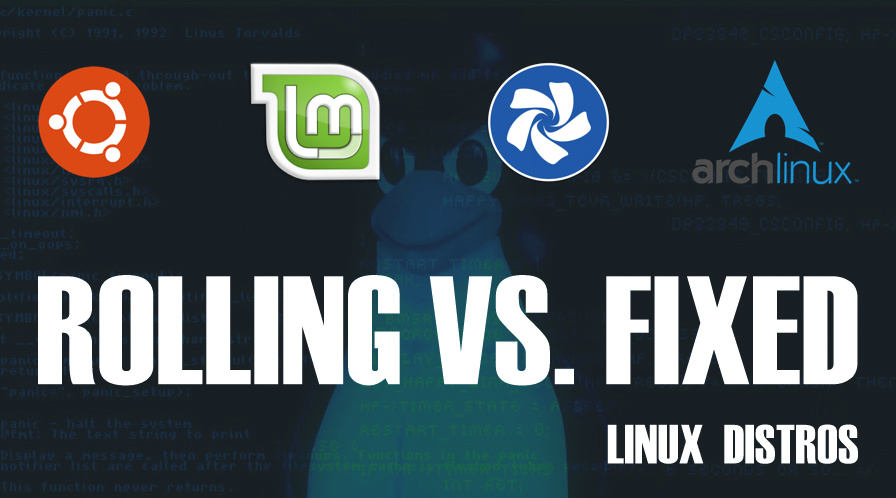 Short Bytes: Different methods are available for updating Linux distributions. On this basis, we can broadly classify various distros as rolling distributions and fixed release distributions. Rolling means that the updates are pushed as soon as they are coded. In fixed release, the updates are tested thoroughly and pushed at once.
Short Bytes: Different methods are available for updating Linux distributions. On this basis, we can broadly classify various distros as rolling distributions and fixed release distributions. Rolling means that the updates are pushed as soon as they are coded. In fixed release, the updates are tested thoroughly and pushed at once.
Years ago, when I got the first glimpse of the world of Linux and its distributions, all I knew was an operating system named Ubuntu. And still, Ubuntu is one such thing that pops up in many people’s mind when they hear the word Linux.
Soon, I started to get the hang of it and realized that the Linux world wasn’t only about Ubuntu, it also had the GNU software and other important components that constitute a working Linux distribution.
Another important thing I came to know was about how the updates are delivered for the Linux distros. There are two types of Linux distros based on the type of update delivery method, rolling distribution, and fixed release distribution. Both of them have their own pros and cons.
Rolling Distribution
If you’re the one who wants the latest features and services straight out of the production, then, rolling distributions are the best deal for you. A rolling distribution receives new apps and features as soon as they get out of the code factory of its developers. Arch Linux is a well known rolling distro. There are a number of Arch-based, Debian-based, Gentoo-based, as well as standalone rolling distros.
Fixed Release Distribution
These are also known as Point Release distributions. In this type of distribution, the updates, released as versions, are pushed after a specified time interval. The apps and feature packages are developed in the time between two consecutive updates. These packages are then released as a combined ISO file or via the inbuilt update feature in the Linux distributions. A significant difference is visible in these version number of these major upgrades. For instance, Ubuntu 16.04 Xenial Xerus and the newer Ubuntu 16.10 Yakkety Yak.
Which is better rolling or fixed release?
Rolling distributions are a great option to enjoy the treats from developers. But great things do come at a price. The price, in this case, is the testing time for these updates. Rolling distributions may become a shelter for various bugs and vulnerabilities. But it is kind of an advantage to have bugs as they can be easily removed before they could affect the masses.
In the case of fixed release distros, the updates and features are thoroughly tested and tried before making their way to the machines of the users. Most consumer-centric Linux distros are based on fixed release update cycles.
A point of concern for the fixed release distros is that bugs and vulnerabilities undiscovered during the testing phase may be used to compromise the security once the update is released. Security patches and minor updates are pushed for such distros in addition to the regular update cycle which proceeds at its normal pace.
The fixed release distros are more stable than the rolling ones as the features and services causing trouble are repaired during the testing phase. That’s a downside for the rolling distros.
Major versions of the fixed release distros may differentiate themselves in terms of appearance and other noticeable features and software. You need to upgrade to the next major version when it arrives. In the case of rolling distributions, you don’t need to upgrade to the next major version because it doesn’t exist. There is no major version number attached to Arch Linux, like we have in the case of Linux Mint, and Ubuntu.
Some people might not like the idea of updating their system all the time. At least in countries like India, where the internet is a luxury. At last, it is the choice of the user, whether to go for the quick rolling updates while compromising stability or ditching new features for a bug-free experience.
If you have something to add, tell us in the comments below.
Also Read: Should I Call It Linux Or GNU/Linux? — Linux Naming Controversy










